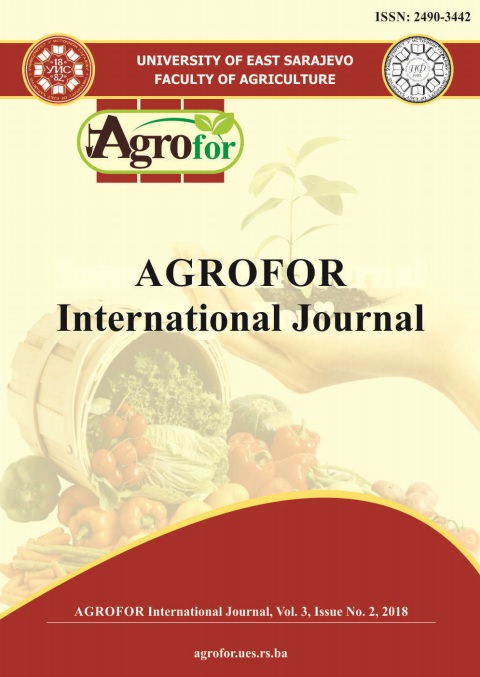ORGANIZATIONAL FORMS OF ORGANIC FARMS IN POLAND
DOI:
https://doi.org/10.7251/AGRENG1802056WAbstract
Organic farms form a perspective segment of the Polish agriculture, which have
been developing very dynamically since Poland accession to the European Union
(from 2004). Changes in the population of these agricultural holdings` group are
the result of the growing demand for organic agricultural products, the growing
environmental awareness of society, as well as current agricultural policy focused
on agrienvironmental practices, for which farmers are remunerated in the form of
subsidies. Organic production methods include good soil condition maintenance,
plant nutritious needs and animal welfare requirements. Organic farms may be
differently organised. There are three basic forms of organic farms organization,
namely: farms that are in transition to organic production system (are
implementing environmental practices in stages); farms that combine organic and
conventional production system; farms organized solely according to the organic
principles. Legal requirements strictly specify what features an organic farm should
have, in each of the identified organisational forms. The aim of the article is to
compare organizational forms of organic farms in Poland in terms of production
and economic efficiency. There were analyzed organic farms in comparison to
conventional farms included in Farm Accountancy Data Network 2015. The
research were conducted on the basis of indicators analysis, considering calculation
reflected costs, production, economics and subsidy value connected with the
Common Agricultural Policy directed to farms.

